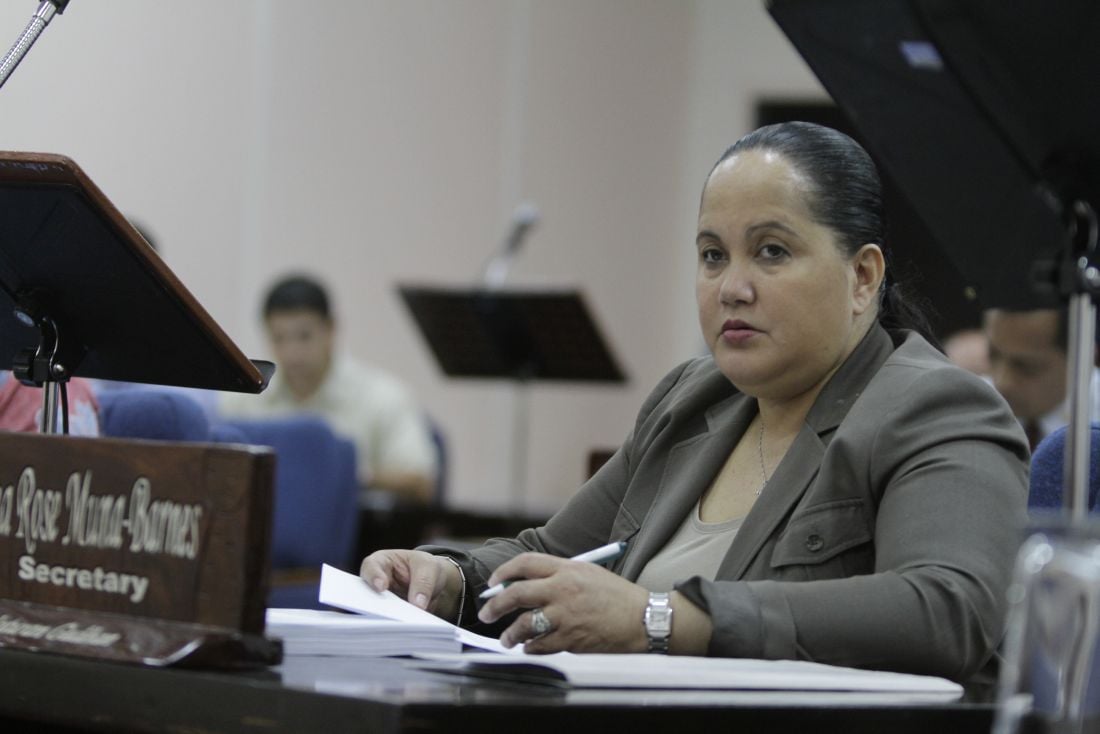Marijuana home cultivation introduced
Stemming from a recommendation to reject the proposed rules pertaining to medical marijuana, Sen. Tina Muña-Barnes has introduced sweeping amendments to the Joaquin “KC” Concepcion II Compassionate Cannabis Use Act of 2013.
The changes include an expansion to the types of diseases covered by the act, the addition of provisions covering laboratory testing and the establishment of a "Compassionate Cannabis Use Fund."
Only individuals with "debilitating medical conditions" are eligible for medical marijuana use under Guam law. The original act specified a number of diseases under the definition of debilitating conditions, with the Department of Public Health and Social Services able to approve the addition of other diseases.
The amended act still includes a set number of conditions but removes the DPHSS-approval requirement and replaces it with language allowing coverage of any disease a patient's practitioner determines can be treated through the use of medicinal marijuana.
"That is a huge victory for us," said Andrea Pellacani, president of Women Grow Guam, a local group promoting the therapeutic use of marijuana. One of the group's criticisms of the original act was the limitation on the types of diseases covered under law.
"One of the things we've been talking about was empowering patients ... to discuss with your doctor, without the bureaucracy in between, the option to seek a more natural treatment for yourself," Pellacani said.
Home cultivation
Part of this empowerment means providing patients easier access to medical marijuana. To this extent, the group has been advocating home cultivation. The original bill that would become the Compassionate Cannabis Use Act included a provision for home cultivation. Muña-Barnes, the bill's co-author, said the provision was removed on the session floor. However, she has expressed interest in reintroducing the provision.
Yesterday, the senator introduced Bill 344-33, a measure allowing for home cultivation of medical marijuana. The bill allows patients or their caregivers to cultivate six cannabis plants on the patient's premises. Certification from a patient's practitioner qualifies as a valid endorsement for a home cultivation permit.
In addition to Bill 344, Muña-Barnes introduced a measure officially rejecting the proposed rules.
This came at the recommendation of Sen. Dennis Rodriguez, the chairman of the legislative committee on health. He cited concerns about certain provisions in the rules exceeding the scope of the original statute, and said that the rules contained contradictory language that could prove detrimental to patients.
‘Useless’
Pellacani stated in the final public hearing on the proposed rules that they were essentially "useless."
Some of the criticisms involved the lack of laboratory testing and high licensing fees.
DPHSS Director James Gillan stated in an email to Muña-Barnes that the department was advised by the Office of the Attorney General to remove laboratory testing from the proposed regulations because it was not part of the original statute. DPHSS was the department charged with promulgating the rules under the Cannabis Use Act.
Amendments to the act require DPHSS to identify one or more testing laboratories and set testing standards. The amended statute also requires medical marijuana products to be labeled as untested if a laboratory cannot be identified within 60 days of the enactment of rules and regulations.
Fees
The fees have also been restructured in the amended statute. The proposed rules establish about $30,000 in application and permit fees for dispensaries and cultivation sites. Permit renewals are another $5,000 annually. The amendments utilize a tiered fee structure for cultivation sites based on the size of the operation.
Moreover, the amendments add commercial manufacturing facilities to the fee structure. Application, licensing, permitting and renewal fees for dispensaries and manufacturing facilities are $20,000 all together. The same fees for cultivation sites range from $10,000 to $40,000.
Pellacani, who had been critical of the old fees, said her group was not totally opposed to the new fees, having proposed something similar in the past, and said lowering them even more may meet some resistance.
"We have to mull that one over to figure out if we're amenable to the total fees," Pellacani said.
Other amendments to the act allow for patient medical records to remain confidential.
The Compassionate Cannabis Use Fund will ensure that revenues collected by the medical marijuana program will first go to funding the program. Up to 50 percent of any remaining balance may go to the general fund. The remaining balance beyond that may go to drug-free outreach programs and other initiatives.


No comments:
Post a Comment